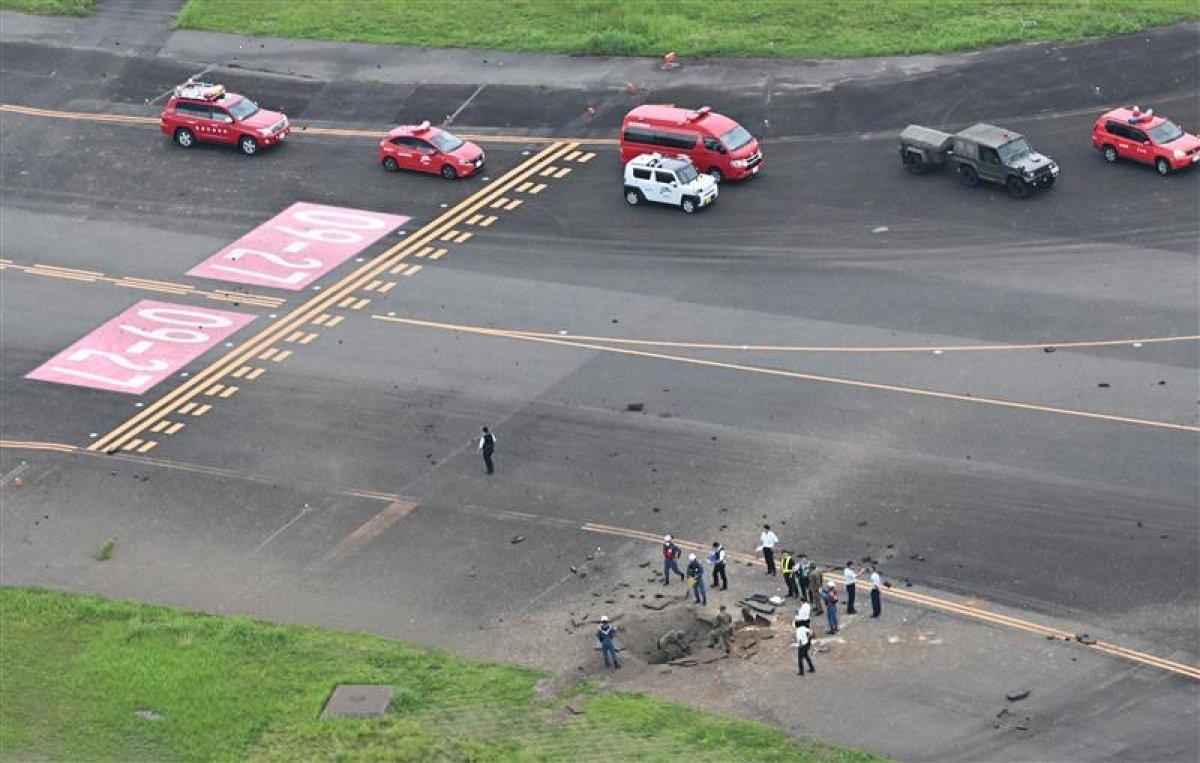A buried American World War II bomb exploded at Miyazaki Airport in southwestern Japan on Wednesday, causing a large crater in a taxiway and leading to the cancellation of over 80 flights. Fortunately, no injuries were reported, according to Japanese officials.
The Land and Transport Ministry confirmed that there were no aircraft near the site when the bomb, weighing 500 pounds, suddenly detonated. Investigations by the Self-Defense Forces and police identified the explosive as an American bomb dropped during World War II. Officials are currently trying to determine the cause of its unexpected detonation, but they have assured the public that there is no further danger.
A video captured by a nearby aviation school revealed the dramatic explosion, with asphalt fragments shooting up into the air like a fountain. Further footage broadcast on Japanese television showed a crater approximately 7 meters (23 feet) in diameter and 1 meter (3 feet) deep on the airport’s taxiway.
The incident severely disrupted airport operations, with Chief Cabinet Secretary Yoshimasa Hayashi announcing the cancellation of more than 80 flights. Miyazaki Airport hopes to resume normal operations by Thursday morning.
The airport, originally constructed in 1943 as an Imperial Japanese Navy flight training field, holds historical significance as it was once a launch site for kamikaze pilots on suicide missions during the war. The area has seen several discoveries of unexploded bombs from U.S. military airstrikes conducted during WWII, according to officials from Japan’s Defense Ministry.
While Japan is known for its careful removal of wartime explosives, hundreds of tons of unexploded ordnance remain buried throughout the country. These bombs are occasionally discovered during construction work, and incidents like the one at Miyazaki Airport highlight the enduring impact of the war on Japanese infrastructure.


















